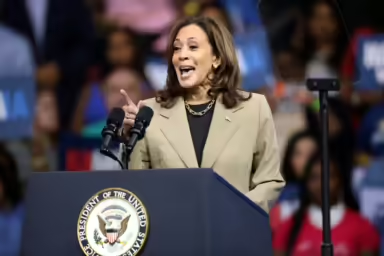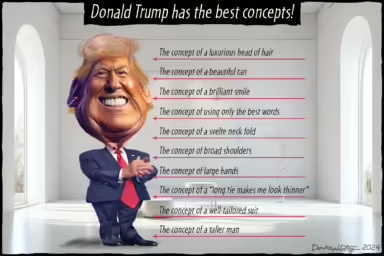In a win for democracy (and Democrats), the Supreme Court rules that Republican state legislatures cannot write election rules as they see fit without state judicial oversight.
|
Listen To This Story
|
Voting rights advocates across the country are breathing a massive sigh of relief after the Supreme Court on Tuesday rejected a radical legal theory that would have allowed state lawmakers to rewrite federal election laws as they see fit without judicial oversight from state courts.
“Today, the US Supreme Court made clear that state courts and state constitutions should serve as a critical check against abuses of power by legislators,” said Bob Phillips, Common Cause North Carolina’s executive director. “Now, we must ensure our state courts fulfill their duty to protect our freedoms against attacks by extremist politicians.”
Even former President Barack Obama weighed in.
“Today, the Supreme Court rejected the fringe independent state legislature theory that threatened to upend our democracy and dismantle our system of checks and balances,” he tweeted.
Today, the Supreme Court rejected the fringe independent state legislature theory that threatened to upend our democracy and dismantle our system of checks and balances.
— Barack Obama (@BarackObama) June 27, 2023
However, the 6-3 ruling in Moore v. Harper also gives the Supreme Court the ultimate say over a state court’s interpretations of state laws as they relate to federal elections. In other words, if a state court’s decision is considered to be “transgressing the ordinary boundaries of judicial review,” then the Supreme Court can reject it.
“Although the Elections Clause does not exempt state legislatures from the ordinary constraints imposed by state law, federal courts must not abandon their duty to exercise judicial review,” wrote Chief Justice John Roberts in the majority decision. “This Court has an obligation to ensure that state court interpretations of state law do not evade federal law.”
That might sound like a good idea in light of the makeup of some very partisan state courts. However, as the Supreme Court is currently dominated by conservatives who have not shied away from making political decisions, including when it comes to election laws, this part of the ruling is more likely to do harm than good for the foreseeable future.
It is also a bit troubling that the high court agreed to hear the case in the first place and that the fringe “independent state legislature” theory wasn’t rejected outright in a unanimous decision.
Or, in the words of Rick Hasen, professor of Law and Political Science at the UCLA School of Law and the director of the Safeguarding Democracy Project: “This is a bad, but not awful, result.”
Essentially, by applying the “independent state legislature” theory, what state Republicans (in this case in North Carolina) were hoping for was a blank check to write election laws unencumbered from any kind of review apart from federal constitutional limits.
For example, in the extreme, North Carolina would not be able to outright deny a person the right to vote because of the color of their skin, because that would be unconstitutional, but they could make it really difficult for a Black person to cast a ballot. If that sounds insane in this day and age, trust us, they have tried.
All of this is pretty complicated stuff, so to understand how insane this argument is, it helps to view it through the lens of sports.
In football, an equivalent to the independent state legislature theory would allow one team to make the rules for the Super Bowl ahead of the game. Let’s say that the red team gets to write the rules any way it wants.
And, as long as those rules don’t violate a broad framework of how football games should be played, for example that they should consist of four 15-minute quarters and that the team with the highest score wins, the blue team would have no recourse to challenge them.
The result, of course, is that the red team wins… and that’s really the outcome Republicans have been aiming for with the hundreds of election laws they passed over the past decade — since the Supreme Court gutted the Voting Rights Act.
Tuesday’s decision makes that a bit more difficult… just not as much as it should have.




